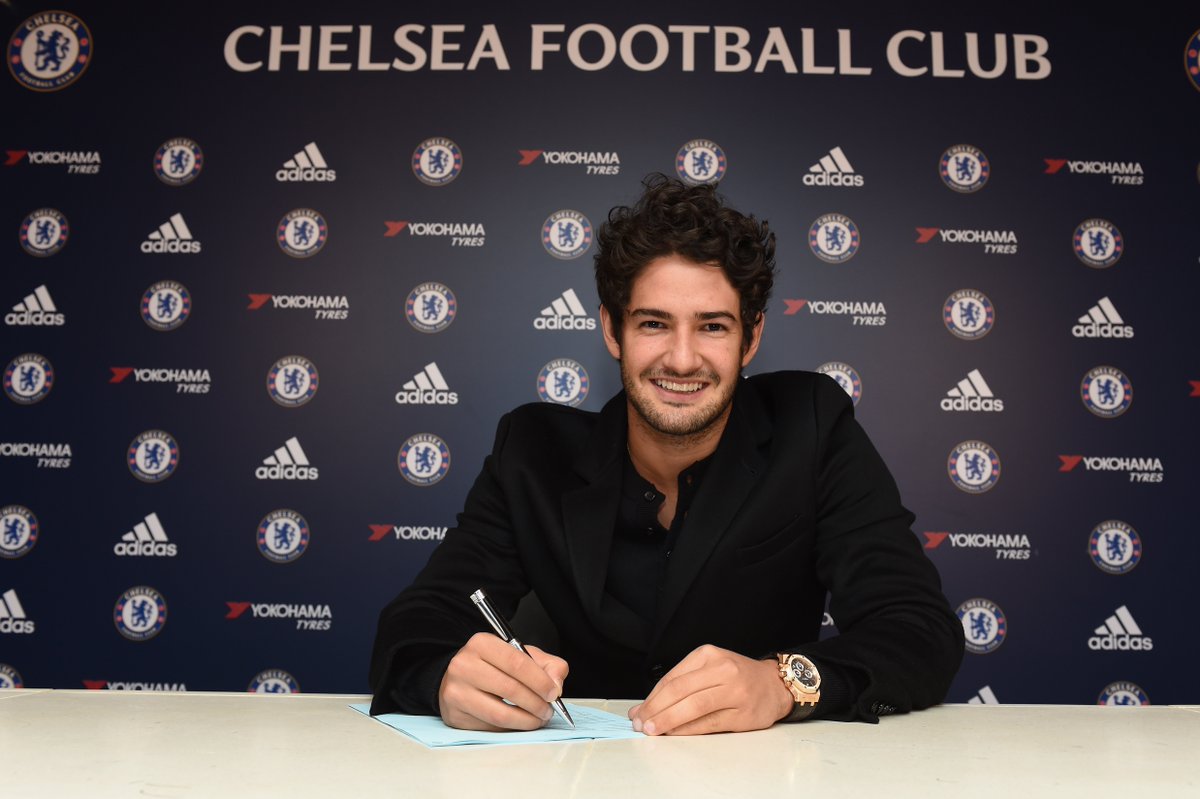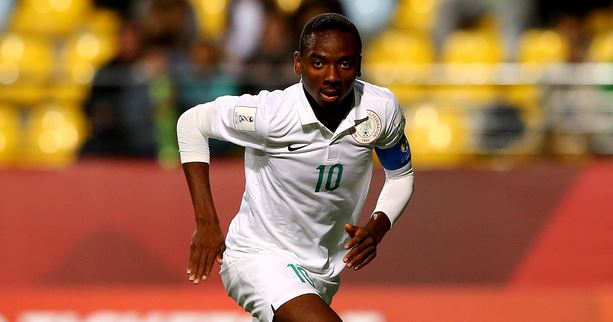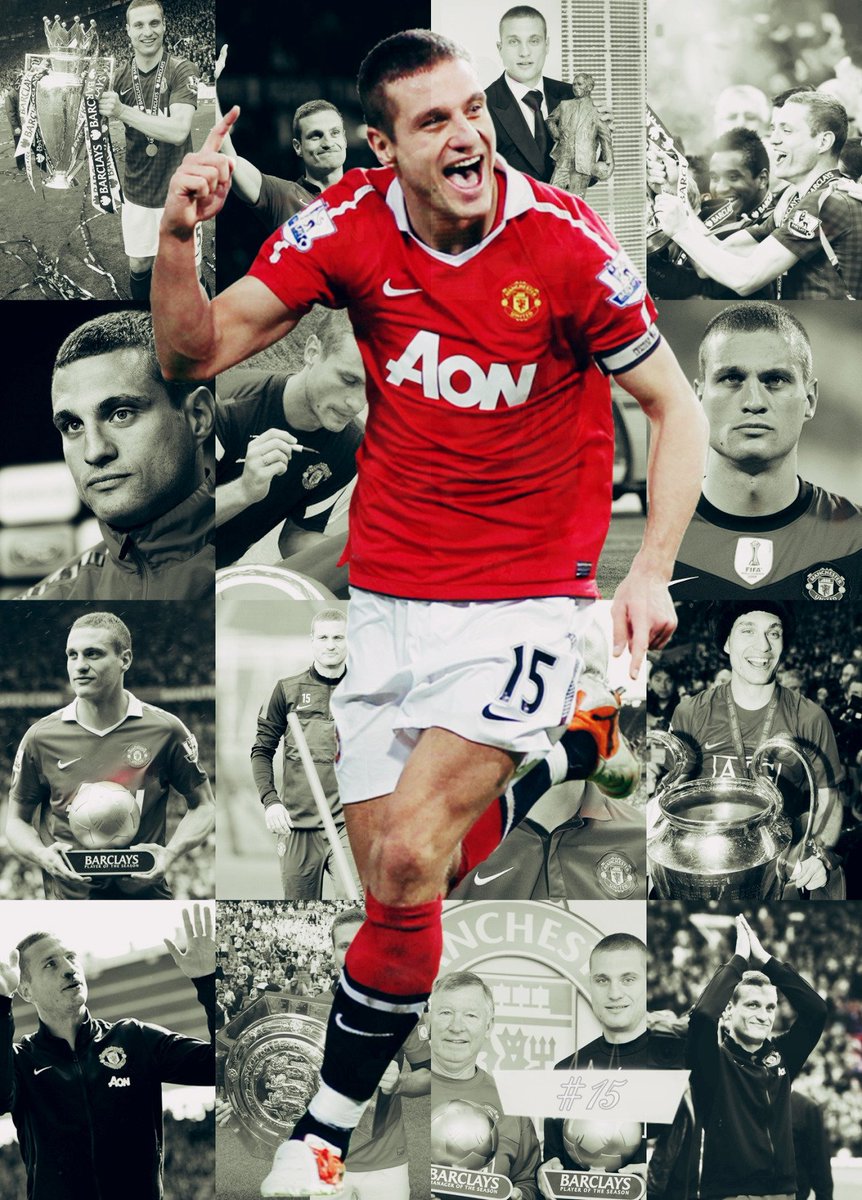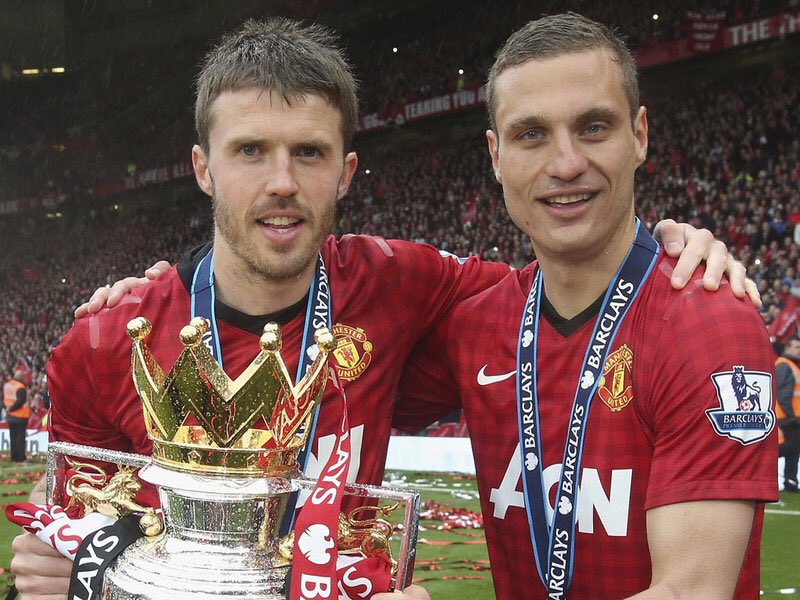Meet Chelsea's new signing, Alexandre Pato

Kelechi Nwakali and Samuel Chukwueze pictured with Wenger and Kanu at Arsenal

Photo Credit: Colin Udoh
For several months, Nigerian wonderkids, Kelechi Nwakali and Samuel Chukwueze have been linked to a move to Arsenal. Going by this picture, which shows them posing with African football legend, Kanu Nwankwo, Arsenal coach, Arsene Wenger and CEO, Ivan Gazidis, seems their move has been finalized. The picture was shared by sports journalist, Colin Udoh this morning. The duo made lasting impressions on the international tournament scene (U-17 World Cup in Chile in 2015.)
Atletico & Real Madrid transfer bans suspended

The Appeal Committee of FIFA has suspended the transfer bans placed on Spanish outfits, Real and Atletico Madrid. Few weeks ago, both clubs were found to have violated several provisions concerning the international transfer and first registration of minor players and were also fined 900,000 and 360,000 Swiss francs respectively.
FIFA has however granted the probationary suspension of the sanction pending the outcome of the appeal.
"I am going to Arsenal to be the best I can"- Kelechi Nwakali

Tributes pour in for Nemanja Vidic after announcing retirement from football

“The time has come for me to hang up my boots. The injuries I have had in the last few years have taken their toll. I would like to thank all the players I have played with, all the managers and staff I have worked with, and say a big ‘thank you’ to the fans for their support over the years.” The Serbian wrote on Manchester United website.
The 34 year-old won five Premier League titles and a Champions League with the Red Devils.
See some of the Tributes below:
I was one of the lucky ones to have played with you. Great memories.
Now Golf


Peter Okoye and Samuel Eto'o hit the streets of London

Peter Okoye is learning the ropes of football management….pretty fast! The singer jetted off to Turkey early this week to meet with Cameroonian footballer, Samuel Eto’o. The duo were spotted in London today. Is the dancer doing a tour of all football clubs in the world? Not impossible!

Don't let the devil use you. – Uche Jombo tells Chioma Akpotha.

 Three of them replied…. But Uche’s reaction was more captivating. Lol.
Three of them replied…. But Uche’s reaction was more captivating. Lol. Short Story: Pristine | By: Morountodun (Vol 9)

Dara had just finished teaching
her first class the following Monday morning when a student met her on the way
with a handwritten note. She hurried off to the headmistress’ office where an
unfamiliar female corper in uniform sat before the headmistress.
replied, motioning for her to take a seat. “I’m pleased to inform you that we
have a new corper joining us. She has just been redeployed to Gombe and was
posted here, and as the ever resourceful person that you are, I thought you
might like to meet and welcome her, especially as you are both in the same
batch. She’s Uju by name.”
smiles as the headmistress continued, “Corper Uju has just reported here this
morning, so she’ll be given the rest of the week off to settle before resuming
fully next week. She’ll be occupying the room next to yours at the lodge so
please help her get comfortable. I know you must be happy to have a fellow
corper in the school now. Congrats.”
relocated to Gombe? Why? My parents have barely forgiven me for not leaving
here!”
later.” Dara smiled. “Will you take my number so I’ll be around when you move
in?”
Dara left for her next class, she thought of Chika. They hadn’t spoken since
the very awkward day at his place and it was unusual for him not to have called
or reached out somehow. Thinking she had probably embarrassed him although she
felt embarrassed herself, she decided to break the ice.
****************
Valentine’s Day. It was afterall a day for lovers and she hadn’t had any. The
yearly red-themed youth fellowship ‘secret’ gifts exchange at church usually
made the day.
to the Mallam Sidi camp for the batch A passing out parade. She didn’t expect
to have any fun there when a batch was done with their service already while
she still had eight more months to go, but being at the event gave her hope
that it would be her turn someday.
when she got there, and his warm smile quickly dispelled all thoughts of hostility.
knowing that feel as good as I imagine?” Dara grinned at him.
cool.”
it?” she asked, squinting to see the parade ground at a distance.
woke up now. They can’t start without him.”
so she asked him, “Waiting for someone?”
weren’t lost,” he said loudly, chuckling.
his face and turned to follow his gaze to see who he had been talking to.
was close enough, “I stopped to get something at a shop on my way. Have you
been waiting for long? I tried to call but couldn’t get through.”
back in town,” Dara said, surprised.
dad. He stays there,” Uju replied.
night. I guessed you might have been asleep and I didn’t want to disturb.”
You couldn’t have disturbed in any way, we live right next to each other now.”
both girls on either of his sides.
Fast-rising Nigerian actor, Emmanuel Imani set for Hollywood stardom


 Rio FerdinandVerified account@rioferdy5
Rio FerdinandVerified account@rioferdy5


